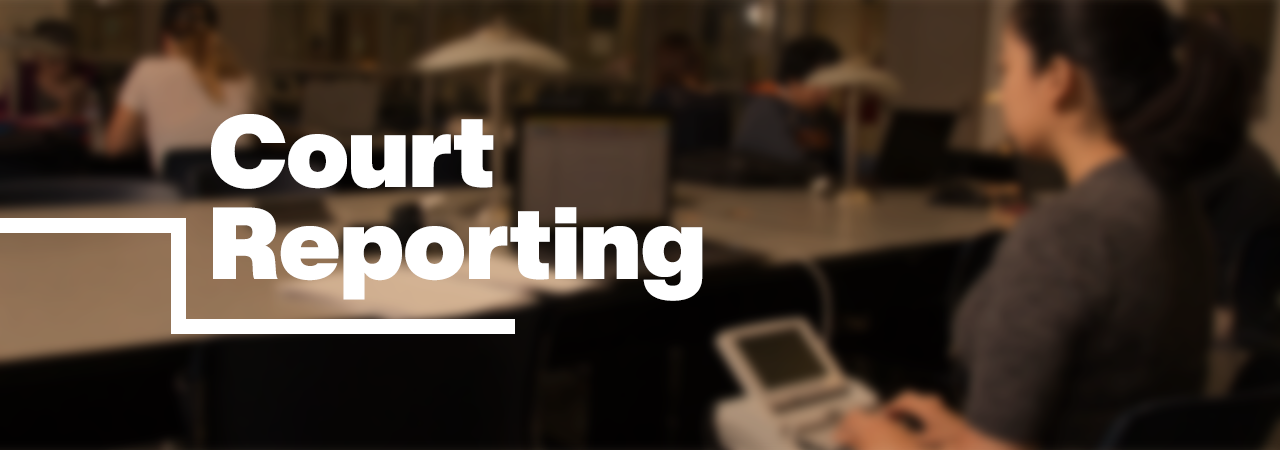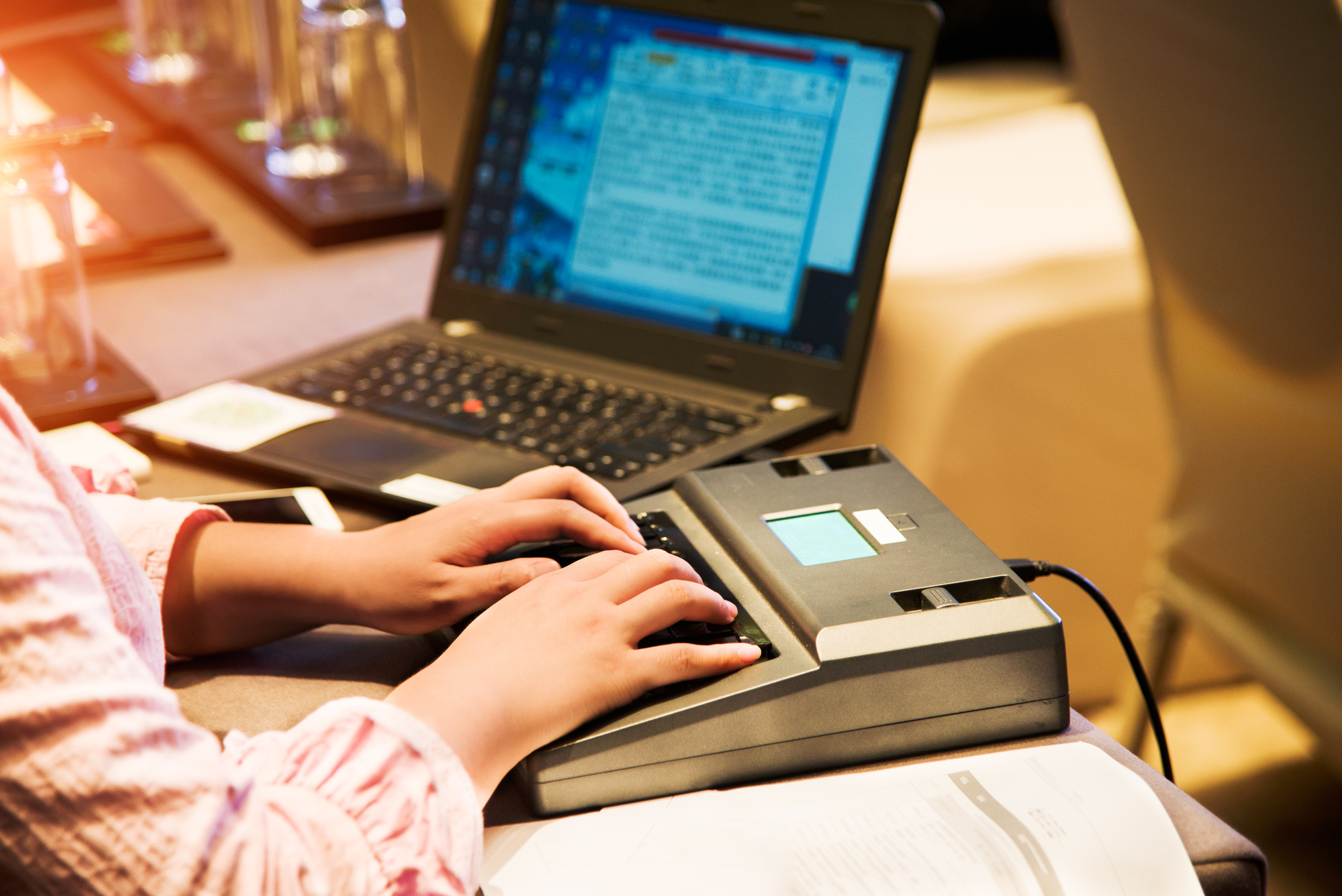The Importance of Court Reporting in Ensuring Accurate Legal Procedures
Court reporting is a crucial component of the lawful system. It offers a exact and neutral document of court room tasks. This paperwork is essential for charms and lawful study, guaranteeing that every spoken word is recorded precisely. The stability of legal procedures depends heavily on these records. The role of modern technology and evolving methods raises questions regarding the future of court reporting and its influence on justice. What adjustments lie in advance?
The Role of Court Reporters in the Legal System
Stenotype reporter play a crucial function in the lawful system by providing accurate and unbiased transcripts of process. Their work assurances that court discussions, witness testimonies, and lawful debates are consistently documented, working as a main record for future reference. This documentation is critical for charms, lawful study, and maintaining the honesty of judicial procedures. Stenotype reporter are trained professionals competent in stenography and different recording modern technologies, enabling them to record spoken words with accuracy. They should have a thorough understanding of lawful terms and courtroom procedures, assuring that their records satisfy the standards required by the judicial system. Furthermore, they may offer real-time transcription services, permitting judges and lawyers to access details instantly throughout process. By fulfilling these responsibilities, court press reporters assist in openness, accountability, and the fair administration of justice, consequently reinforcing the foundational principles of the lawful system.
Making Sure Precision in Transcription
Accuracy in transcription is vital for preserving the integrity of legal process. Court reporters carefully record every word spoken throughout depositions, hearings, and trials, assuring that the official record reflects the true dialogue and exchanges that take place. This accuracy is essential, as also small errors can bring about significant misunderstandings or misinterpretations of the legislation.
To accomplish this level of accuracy, court reporters employ various methods, including energetic listening and making use of specialized shorthand methods. Constant training and knowledge with legal terms likewise boost their capacity to generate reliable records.
Moreover, the confirmation process is essential; press reporters commonly assess their transcripts for prospective discrepancies before last submission. This persistance not just maintains the high quality of legal documentation yet also supports the judicial process, allowing lawyers and courts to reference exact records when choosing. Inevitably, exact transcription cultivates rely on the legal system and assurances that justice is served.
The Effect of Modern Technology on Court Reporting
As technology remains to advance, its influence on court reporting has actually come to be progressively substantial. Digital recording systems and speech acknowledgment software application have actually transformed traditional practices, supplying brand-new devices for recording talked dialogue. These improvements enhance performance and availability, enabling quicker transcription and real-time reporting. In addition, cloud-based platforms help with seamless sharing of records, boosting cooperation amongst lawful specialists.

Inevitably, while technology improves the speed and ease of access of court reporting, it emphasizes the need for human oversight to maintain the high quality and accuracy important for lawful procedures. As the area remains to adapt, the assimilation of technology will go to these guys certainly play a pivotal function in shaping the future of court reporting.

The Importance of Discretion and Integrity
Confidentiality and honesty are basic concepts that underpin the method of court reporting in lawful proceedings (durham court reporting). Stenotype reporter are delegated with delicate details, requiring them to preserve discretion and protect the personal privacy of all celebrations entailed. This discretion fosters a relying on setting where witnesses and litigants can talk openly, ensuring that the legal process is reasonable and simply
Stability additional reading is similarly important; stenotype reporter need to provide exact and objective records, working as the authorities document of the process. Any type of lapse in honesty can bring about misconceptions, potentially affecting situation results and threatening the judicial system.
Future Patterns in Court Reporting
The landscape of court reporting is developing in action to technical innovations and the altering demands of the legal career. Arising fads consist of the integration of man-made knowledge and real-time transcription services, which improve effectiveness and accuracy. Court press reporters are significantly utilizing electronic tools, such as cloud-based platforms, enabling for seamless partnership amongst legal teams and simpler accessibility to records.
In addition, the increase of remote court process has motivated the development of specialized training for reporters in online atmospheres. This shift not only adapts to the demands of a globalized legal landscape but likewise addresses challenges presented by geographical barriers.
In addition, the emphasis on accessibility is driving advancements in transcription formats, guaranteeing that legal records satisfy diverse target markets. Generally, the future of court reporting is characterized by a blend of traditional abilities and contemporary technology, positioning press reporters as vital gamers in the legal procedure.
Frequently Asked Concerns
What Credentials Are Required to Become a Stenotype Reporter?
To become a court reporter, individuals commonly call for a senior high school diploma, specialized training in court reporting, proficiency in shorthand or voice writing, and certification or licensing, depending upon the jurisdiction and particular job needs. - durham court reporting
Exactly How Do Court Reporters Maintain Their Abilities With Time?
Stenotype reporter maintain their abilities gradually through constant education, technique, and involvement with professional companies. They often participate in workshops, use sophisticated innovation, and take part in qualification programs to boost their effectiveness and adapt to click site evolving requirements.
What Challenges Do Court Reporters Face in Their Career?
Court press reporters encounter various difficulties, consisting of taking care of high-pressure environments, adjusting to diverse accents and languages, maintaining technological efficiency, guaranteeing accuracy under limited target dates, and dealing with emotionally billed testimonies that might influence emphasis and performance.
Are Court Reporters Entailed in Other Legal Settings Besides Court Rooms?
Court press reporters are indeed associated with different legal setups beyond courtrooms, consisting of depositions, arbitration hearings, and administrative process. Their experience warranties accurate records in these atmospheres, adding to the quality and dependability of legal documentation.
How Do Stenotype Reporter Take Care Of Stressful Situations Throughout Process?

Court press reporters manage difficult situations by preserving focus, employing effective time management abilities, and using their training to continue to be tranquil. They frequently exercise deep breathing and utilize methods to reduce diversions, guaranteeing precise documentation under pressure.
Court reporting is a critical part of the legal system. Court reporters play an important duty in the legal system by offering accurate and neutral records of procedures. Ultimately, while technology improves the speed and access of court reporting, it underscores the need for human oversight to keep the quality and accuracy necessary for legal process. Discretion and integrity are essential principles that underpin the technique of court reporting in lawful process. Court press reporters are indeed included in various lawful setups past courtrooms, consisting of depositions, arbitration hearings, and administrative procedures.